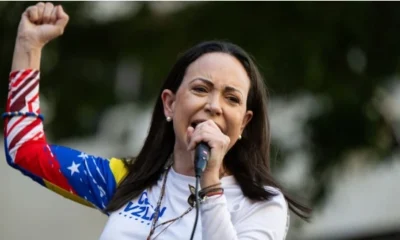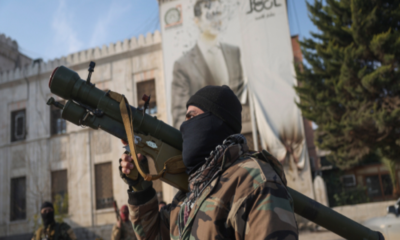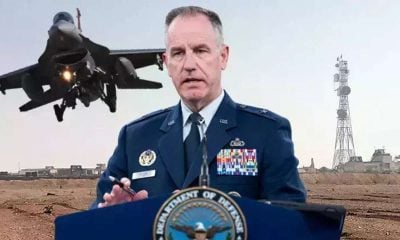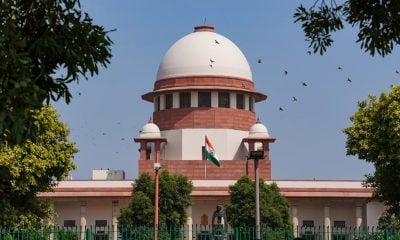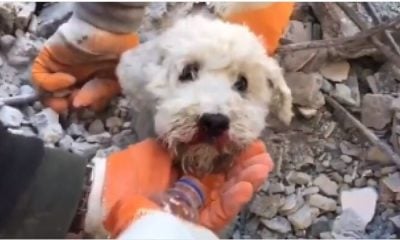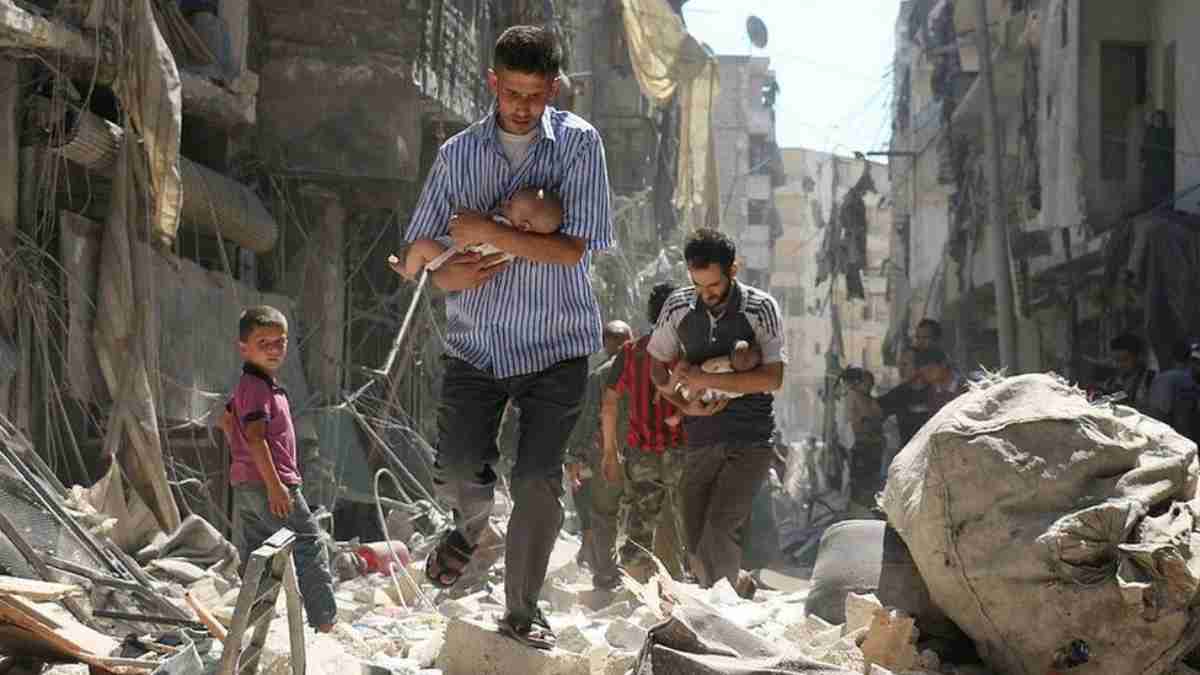Damascus wins civilians confidence
Finally situation in Eastern Ghauta near Damascus has moved forward with successful government’s dual strategy of continuing military operations against the armed groups and facilitating the civilians exit by implementing five-hour-a-day pause in hostilities as suggested by Russian government. So far some 2,000 civilians have left the besieged enclave.
According to Aljazeera, thousands of Syrians are fleeing a government-led offensive on the rebel-held Eastern Ghouta as President Bashar al-Assad vowed that the fight would continue until the eradication of terrorism.
According to Syrian state media, President Basher al-Assad, in a televised address to the nation on Sunday evening, has vowed to continue operations in Eastern Ghouta. “We will continue fighting terrorism … and the Ghouta operation is a continuation of fighting terrorism,” he said.
“There is no contradiction between a truce and combat operations. The progress achieved yesterday and the day before in Ghouta by the Syrian Arab Army was made during this truce. Therefore we must continue with the operation in parallel with opening the way for civilians to leave,” he said.
Read More: Syria: Rescue leaflets for civilians, militants thrown in Eastern Ghouta
Syrian President also dismissed western claims concerning the humanitarian situation as ridiculous and false accusations. “The humanitarian situation which the West speaks of from time to time, is a very ridiculous lie, as ridiculous as the western officials who repeat it,” he said.
State media has claimed that Syrian forces have advanced on several fronts, retaking control of farms and villages. They seized a number of districts including Al-Nashabiyeh and Otaya and had “eradicated terrorist groups”. The Central Military Media said Syrian forces reached the outskirts of Mesraba, in central Ghouta.
Syrian official news agency SANA, in its latest report has claimed that it has undertaken camera tour over al-Nashabiyeh town in Eastern Ghouta after liberating it from Jabhat al-Nusra terrorists.
Meanwhile, London based pro-rebel Syrian Observatory of Human Rights (SOHR) said that some 2,000 civilians had fled regime shelling and clashes in eastern areas to the western parts of the enclave.
“Everyone is on the road. There’s destruction everywhere,” said 35-year-old Abu Khalil, carrying a little girl in his arms with a wound to her face. “Many families are trapped under rubble, the rescue workers just can’t cope,” he said.
Syrian government forces have seized roughly one-quarter of the territory in recent days. They have reached the centre Eastern Ghouta to the edge of Beit Sawa.
Aljazeera reports that Hamza Biqdar, the spokesman of Jaish al-Islam rebel group, has in an audio message, vowed that government forces would be driven from the territory they had captured. He claimed that the rebels had fortified positions to confront the attacking forces.
Read More: 41 Turkish soldiers killed by US backed militia in Syria
The spokesman further said that anti Assad rebels were forced to retreat and regroup in Eastern Ghouta because of the Syrian government’s “scorched earth” policy involving heavy artillery fire, air strikes, and helicopter attacks.
AFP correspondent in Eastern Ghouta saw hundreds of civilians fleeing from the town of Beit in the southeast of the enclave on Sunday.
Earlier on Sunday, SANA had reported that for the seventh consecutive day, Jabhat al-Nusra terrorist organization and the terrorists affiliated to it have prevented the civilians to exit from Ghouta through the safe corridor in al-Wafideen Camp.
Eastern Ghouta, home to some 400,000 people, has been under a crippling siege and daily bombardment for months. Western media has claimed that more than 600 civilians have been killed in the last two weeks alone.
Read More: Syria: US, Russia continue nursing interests amidst bloodshed
Recently, UN Secretary General Antonio Guterres has expressed his serious concern saying that population of Ghouta is living in “hell on earth”. In one district, 93% of buildings had been damaged or destroyed by December 2017.
United Nations Human rights Council held an emergency meeting on March 2 when its chief Zaid Ra’ad al-Hussain said, “I must emphasise that what we are seeing, in Eastern Ghouta and elsewhere in Syria, are likely war crimes, and potentially, crimes against humanity. The perpetrators of these crimes must know they are being identified; that dossiers are being built up with a view to their prosecution; and that they will be held accountable for what they have done”.
Most of the areas, which were earlier captured by Daesh (IS), Jabhat al-Nusra and other anti Assad groups, have been liberated in recent months. Raqqa, Aleppo, Hama, Deir al-Zaur and several other cities and towns have already been liberated by Syrian forces supported by Hezbollah and Iranian military advisors on the ground and Russian warplanes in the air.
After completion of military operations in Eastern Ghouta Syrian forces will focus in liberating Idlib, where armed groups were transported from other areas during last one year.


 Latest world news11 hours ago
Latest world news11 hours ago
 Latest world news11 hours ago
Latest world news11 hours ago
 India News11 hours ago
India News11 hours ago
 Latest world news11 hours ago
Latest world news11 hours ago
 India News10 hours ago
India News10 hours ago
